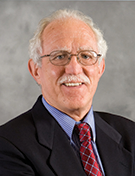David Lam, University of Michigan
| When |
Dec 04, 2017
from 12:00 PM to 01:00 PM |
|---|---|
| Where | 1101 Morrill Hall |
| Contact Name | Jennifer Doiron |
| Contact Phone | 301-405-6403 |
| Add event to calendar |
|
About the Presentation
Brazil and South Africa have long had among the highest levels of earnings inequality in the world. An important component of this has been the combination of high inequality in schooling and a steep schooling-earnings gradient. Both countries have experienced large declines in schooling inequality in recent decades. Earnings inequality has been virtually unchanged in South Africa, however, while it declined substantially in Brazil. This paper tries to understand these divergent trends by providing theoretical and empirical analysis of the interactions of schooling inequality, returns to schooling, and earnings inequality. The paper focuses on two main questions: 1) What is the relationship between inequality in schooling and inequality in earnings? 2) How do changes in returns to schooling affect earnings inequality when returns differ by schooling level? New analytical results are derived to guide empirical analysis of changes in earnings inequality in the two countries. Declines in schooling inequality worked in the direction of reducing earnings inequality in both countries. In South Africa, however, this was almost entirely offset by increases in the returns to high levels of schooling, an offset that did not occur in Brazil.
About the Speaker

David Lam is Director of the Institute for Social Research, Professor in the Department of Economics, and Research Professor in the Population Studies Center at the University of Michigan. He is Honorary Professor of Economics at the University of Cape Town, South Africa. He received a M.A. in demography and a Ph.D. in economics from the University of California, Berkeley. Professor Lam’s research focuses on the interaction of economics and demography in developing countries, including analysis of the economics of population growth, fertility, marriage, and aging. He has worked extensively in Brazil and South Africa, where his research analyzes links between education, labor markets, and income inequality. He has served as president of the Population Association of America and currently serves on the Council of the International Union for the Scientific Study of Population (IUSSP). He was a member of the Committee on Population of the U.S. National Academy of Sciences, and has served as an advisor or consultant to the World Bank, the U.S. National Institutes of Health, the United Nations Population Division, the United Nations Development Program, and the South Africa Office of the Presidency.
